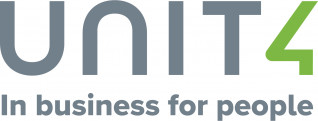I’ve been negotiating contracts for so long now that it’s impossible for me to remember every moment in every negotiation
But there’s one thing I remember vividly from every single negotiation, because it’s probably the one thing that’s remained constant through all these years
I’ve never had my mind changed in a negotiation
I’ve agreed to things and made compromises, all for the sake of getting a deal done, but no one’s ever convinced me that they were right and I was wrong…about anything
And likewise, I’ve never changed anyone’s mind in a negotiation, because that’s not the purpose of a negotiation
Our goal as negotiators is to compromise, give and take, until we arrive at a deal that’s mutually beneficial…that makes good business sense for both sides
However, too often I see negotiators become preachers who start lecturing the other side on the “truth of the matter”
Well the truth of the matter is that if I come into a negotiation believing a supplier’s software was worth no more than $10K, there’s absolutely nothing they can say that’ll convince me it’s worth a penny more than that
Now I may agree to pay more than $10K, but not because I’ve seen the error of my wicked ways and repented for doubting the honesty of a software vendor
I’ll pay more because there’s other factors impacting my decision
Maybe I know that they’ll never sell me the software for $10K so I’ll try to get other things thrown into the deal…longer warranty period, better indemnities, a cap on annual increases
The point is, I’m not focused on convincing them that I’m right and they’re wrong in a negotiation
The “truth of the matter” is that I couldn’t care less what they believe, as long as I get everything I need to make this a good deal for my organization
And I realize that’s a lot easier said than done. We’re human beings and we’re constantly looking for validation of our beliefs
Just turn on the news and see what’s going on in the world…right vs. left, liberal vs. conservative, republican vs. democrat
People yelling and screaming, lying and acting violently…just to show that they’re right and the other side’s wrong
Thankfully no one’s ever been violent with me in a negotiation, but I’ve been yelled at and I’m constantly being lied to
But none of that’s going to change my mind
I may walk away from a deal if I find out I’m being lied to, but more often I’ll use that as leverage in the negotiations
And the minute someone raises their voice it’s like they flipped on a flashing neon sign that says “I have no more valid arguments so I’m just going to start screaming like a petulant 5 year old”
So how do we achieve that zen-like state where we can just tune out the noise and focus on getting a good deal?
Well, the first thing you need to do is define what a “good deal” means for your organization…what’s your BATNA?
Is it driven by price… does have to be less than a certain dollar amount or you’ll walk away from the deal?
Is it driven by timelines… does it have to be done by a certain date or you’ll walk away?
Is it driven by features and functionality… it has to do these things or there’s no deal
Next, you need to set your threshold of acceptability, like how much you’re willing to compromise on certain terms and conditions
Or how much screaming and lying are you willing to put up with
All of these things create the foundation for a strong negotiating strategy and, when you have that, the rest is just noise
Now all of the things I’ve just talked about, and much more, are covered in the Sourcing Essentials Course my colleague, Mark Morrissey, and I launched a few months ago (https://oneviewnow.com/training)
And I truly believe that anyone who gets involved in Procurement, Vendor Management or Negotiations for their organization would benefit from this course
But it doesn’t matter what I believe, it only matters what you and your organization need right now
So I’m not going to try convincing you to believe me…instead, I’ll show you
In January of 2020 I launched a course called the “7 Skills of the Elite Negotiator” and I made it free
Almost 250 procurement professionals, legal professionals and senior executives took the course
I’ve reopened that course for 90 days, you can sign up here -> https://mop.mykajabi.com/7-skills-signup
So if you’re on the fence about the Sourcing Essentials Course, sign up for the free one and decide for yourself whether or not this type of training is for you
And when you’re ready to take the Sourcing Essentials Course, feel free to reach out to me directly at [email protected] to learn about our corporate group rate
Mohammed Faridy
CEO, OneView









